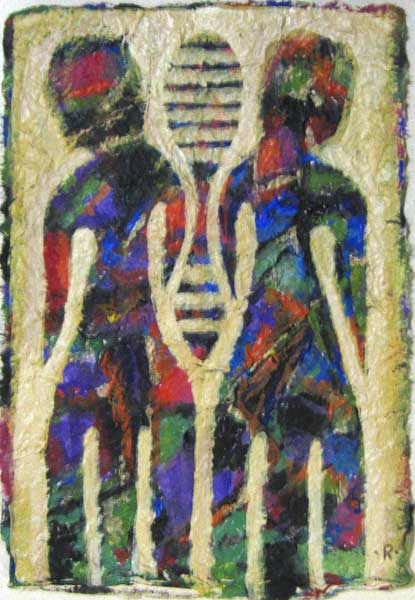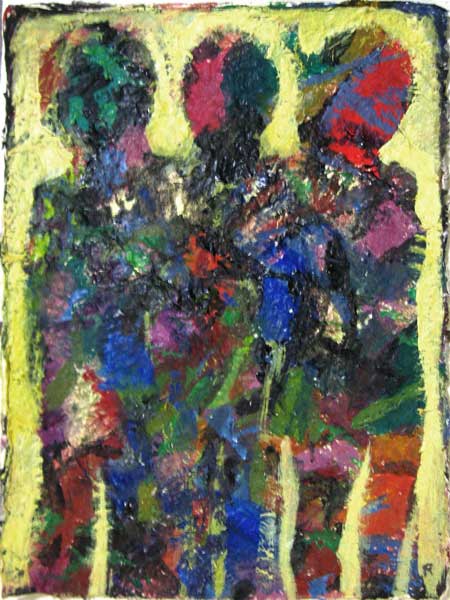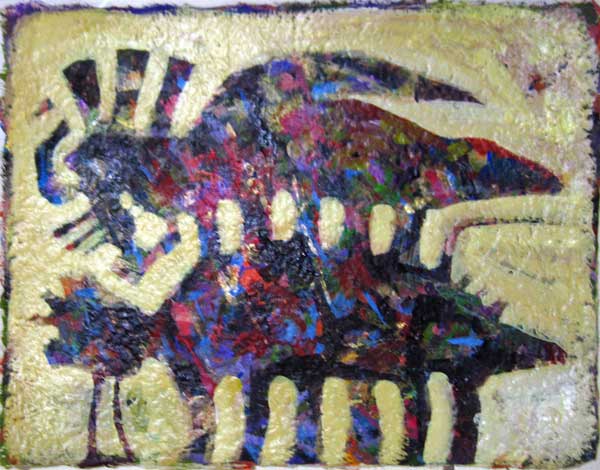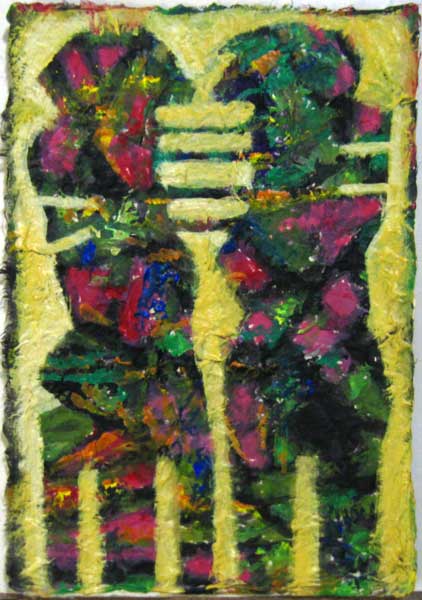“Definition of the affect, the affect: what every affection envelops, is the passage,
it is the lived passage from the preceding state to the current state,
or of the current state to the following state.”1

One side against same-sex marriage – in a debate that still continues – is that it contradicts the definition of marriage; that marriage ought to entail only a man and a woman. Why? Because – according to this side – the latter is the real meaning of marriage, the Judeo-Christian belief requires it, and our society has been traditionally structured on the foundation that “opposite-sex” marriages are the only ones acceptable.
The definition of marriage – however – has never been only one. From corner to corner in cultures worldwide and throughout history, the structure of what is considered a family has always varied significantly.2 While early on in the Middle East and Europe monogamy was privileged, with no option for divorce,3 certain Native American groups engaged in polygamy – as did some of the Hebrew culture as well.4 For various Africans and Asians, same-sex marriages were allowed when a partner in the union carried on the role established by society to be that of the other gender.5

In the Arctic, Inuit’s created what was defined as a co-marriage: a union where two married couples composed each of one man and one woman exchanged their significant other. This agreement was thought to promote harmony among tribes.6 South American families encouraged their pregnant women to have lovers, holding these to be accountable for the child. A very high percentage of these children were able to grow into adults.7 Until recent generations in a part of India, one woman married one man and all his brothers also. This tradition reserved a small land for one whole family and was seen to help with the issue of overpopulation.8

In the Western world, early Christians brought forth another redefinition of marriage. They stated then that a man might divorce his wife if she was unsuccessful in bearing children.9 Later on but not so long ago – in the 1960s and 1970s – laws that supported the notion that marriage was the union of two persons with different gender roles – one self-assigned by men and another assigned to women – were found to be deceptive and unfair.10 “Values, morals, homelands, religions, and these private certitudes that our vanity and our complacency bestow generously on us, have many deceptive sojourns as the world arranges for those who think they are standing straight and at ease, among stable things.”11

Now, the recent decision of the United States Supreme Court in the redefinition of marriage12 is the result of a dynamic cultural, social, historical process of constant redefining and questioning of the way we organize ourselves and co-exist as human beings. This decision comes from a process of struggle that has not been easy, as it sought to achieve not only changes in the law, but also changes in our perception and conception of what a family is and what the foundations of our society are. A large minority organized itself to achieve this conquest, as others have done – and continue to do – for many struggles that cost hard work and sacrifice.
One of the things this redefinition takes us to is to ask ourselves how legitimate and stable is the traditional idea of certain ideological discourses of what morality is. It brings forth a challenge in how we conceptualize morality and in the role religion has been assumed to play as its source. Empathy and reasoning are what make us moral. It is with these that we make love win.
“You will not be defined by your form,
by your organs, by your organism, by your genus or by your species,
tell me the affections of which you are capable and I’ll tell you who you are.
Of what affects are you capable?“13

1. Gilles Deleuze
2. History of same sex unions
3. Monogamy
4. Hebrew Culture
5. The Secret History of Same Sex Marriage
6. Inuit
7. Amazon tribes believe a child can have more than one father
8. Polyandry
9. Divorce: The Halakhic Perspective
10. The 1960s-70s American Feminist Movement: Breaking Down Barriers for Women
11. Gilles Deleuze
12. Supreme Court Rules in Favor of Nationwide Same-Sex Marriage
13. Gilles Deleuze
Ashley Z. says
I love this article and your so very broad minded perspective. I didn’t know a lot of these cultural views on marriage and family and the history of it. Thank you for sharing!